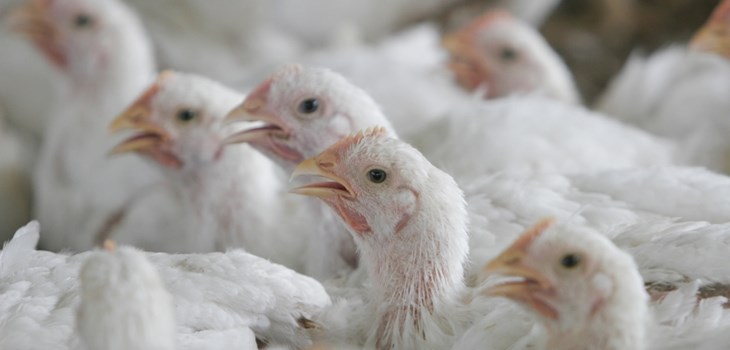Without major reforms to industrial farming it will not be possible to end the spread of bird flu or reduce the risk of a global human pandemic, warns a compelling new report we have released today (22nd August).

The report – Bird flu: Only major farm reforms can end it – shows that, contrary to popular belief, wild birds are typically victims of the disease rather than the cause, and it is spiralling out of control due to the rise of factory farming.
Three-point action plan
Backed by the very latest scientific evidence, the report urges governments to implement a three-point action plan which includes:
- Mass vaccination of flocks to slow the spread.
- Radical structuring of the poultry industry, to adopt smaller flocks with lower stocking densities and more robust breeds and avoid clusters of poultry farms to reduce the risk of highly pathogenic strains emerging and spreading.
- Changing the way pigs are farmed as intensively farmed pigs can act as ‘mixing vessels’ to create new pig, bird and human viruses.
Today, we have written to the UK Government and others across Europe and the US urging them to work with the World Organisation for Animal Health (WOAH) and the United Nations Food and Agriculture Organization (FAO) to implement this action plan without delay.
Tens of thousands of wild birds are reported to have died from bird flu, although the true number is thought to be in the millions. Until recently, the bird flu that circulated in wild birds generally caused them little harm. But when the virus enters overcrowded factory farm poultry sheds – often carried in on workers’ contaminated shoes, clothing or equipment – it can evolve into dangerous Highly Pathogenic Avian Influenza (HPAI).
A ticking time bomb
These intensive farms create the ideal conditions for the spread of the disease as they give viruses a constant supply of hosts – allowing infections to spread rapidly – and for highly harmful new strains to emerge.
More than half a billion farmed birds have died or been culled globally due to bird flu since 2021. Many were broilers (meat chickens) confined in intensive systems where they are crammed closely together in huge sheds, or egg-laying hens that live confined in cages.
Author of the report and our Chief Policy Adviser, Peter Stevenson, said: “Bird flu is like a ticking time bomb. Unless we wake up and take urgent action to end factory farming we will simply be unable to stop its rapid spread across the globe or reduce the risk of a serious human pandemic developing.
“Three key actions are needed to tackle this disease – vaccination, major reform of the poultry industry and an end to the factory farming of pigs. Governments around the world must implement this three-point plan without delay. If they don’t, millions more birds and other mammals are likely to suffer and die and the health of millions of people may be in serious jeopardy.”
A real pandemic risk
Birds are not the only animals affected by avian flu. The disease has already spread to mammals – infecting otters, foxes, dolphins, sea lions, mink, and domestic dogs and cats, amongst others. It has also developed the ability to spread from one mink to another – something it previously had not been capable of in mammals; this makes it far more dangerous. If it develops the same ability to spread between humans, it becomes a real pandemic risk.
Better Chicken - lower risk
Compassion is urging all companies to sign up to the Better Chicken Commitment to improve the lives of all the chickens in their supply.
By moving to slower growing, robust breeds, reared at lower stocking densities, with natural light and enrichments - and by moving away from intensive systems to regenerative farm systems - companies can lower the risk of bird flu within their supply chains.